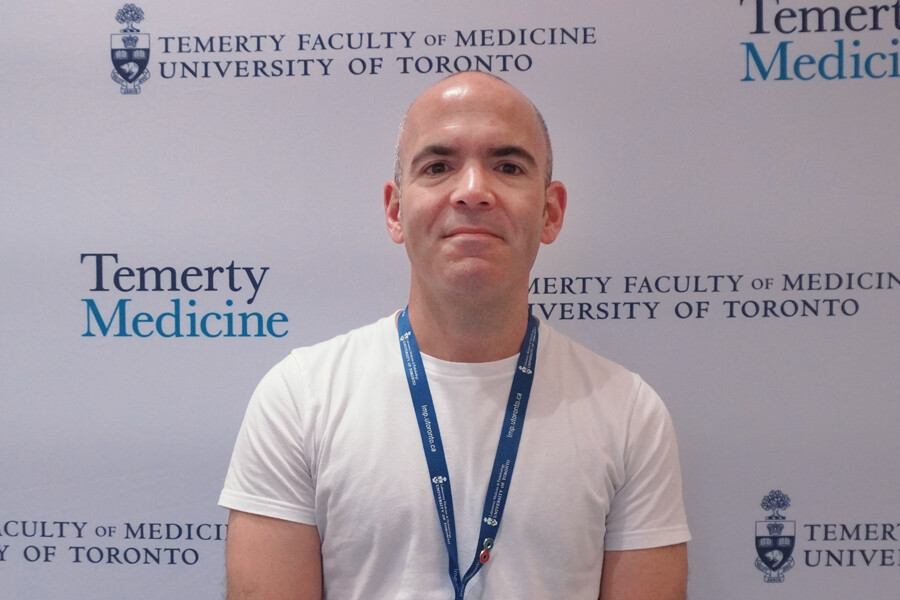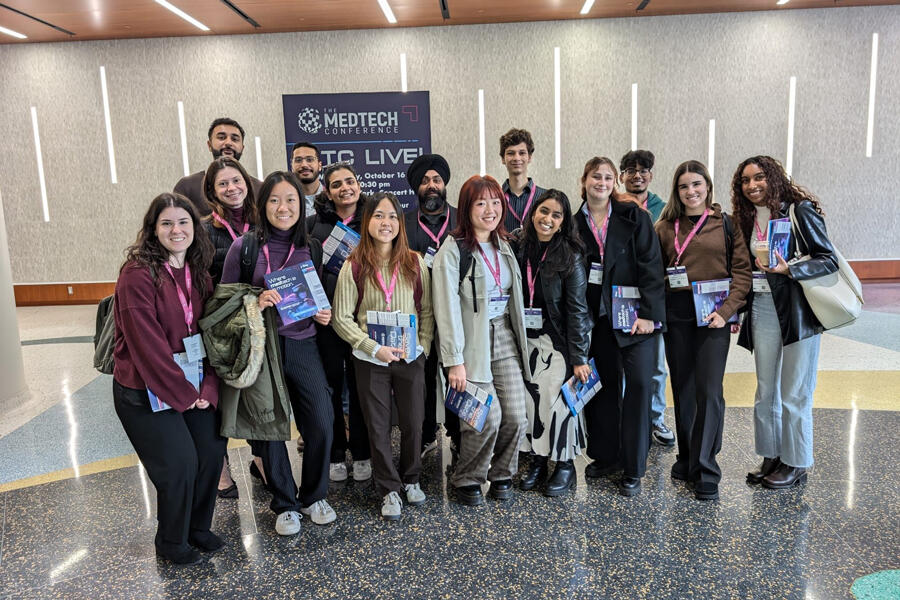
Each month, we highlight a current student in the Translational Research Program (TRP).
Meet second year student, intensive care physician and clinical researcher – Dr. Federico Carini.
Before joining the TRP Program, Federico spent a decade as an Attending Physician in the Intensive Care Unit at Hospital Italiano de Buenos Aires, also in roles of Clinical Researcher and Associate Professor in Critical Care Medicine. During his career, he has led initiatives like the Effective Pain Management program in the ICU and participated in international collaborations, such as the Best Evidence Medical Education (BEME) fellowship with the International Association for Health Professions Education (AMEE).
Recently, he decided to expand his expertise by becoming a Clinical and Research Fellow in Critical Care Medicine at the University of Toronto whilst completing the Translational Research Program. His professional journey has always been focussed on improving critical care outcomes and advancing medical education.
Translational research in the TRP goes beyond the traditional “bench-to-bedside” approach. It emphasizes collaboration across disciplines, ensuring that innovative solutions address real-world challenges in healthcare. The program highlights the importance of translating discoveries not just into clinical practice but also into healthcare systems, policy, and patient experiences.
I was inspired by the program’s focus on creating meaningful impact. The opportunity to collaborate with experts from diverse backgrounds and tackle healthcare challenges from a systems-level perspective resonated with my passion for improving ICU care. Additionally, I wanted to gain tools and frameworks to enhance the scalability of my research into clinical practice.
One of the biggest highlights of the program has been working on my Capstone research project. It has provided me with the opportunity to interact with different stakeholders in the ICU, including clinicians, researchers, and patients’ families.
Collaborating with my PAC (Project Advisory Committee) has been an invaluable learning experience, allowing me to gain diverse perspectives, refine my project, and work diligently towards its completion. This process has been both challenging and rewarding, as it has helped me grow as a researcher and as a professional committed to improving healthcare delivery.
The mentorship and networking opportunities have been invaluable. Connecting with professionals who are leaders in healthcare innovation has expanded my understanding of what’s possible in translational research. Workshops on design thinking and implementation science have also equipped me with practical tools to apply to my work.
The TRP has fundamentally changed how I approach problems. I now view healthcare challenges through a broader lens, considering patient outcomes alongside systemic barriers, resource constraints, and implementation pathways. This has made my approach more holistic and solution oriented.
The program can position me to become a leader in healthcare innovation. I aim to bridge the gap between research and practice, ensuring that advancements in critical care medicine and sedation, delirium and analgesia management are implemented effectively. I expect that the skills I am acquiring will enable me to lead multidisciplinary projects and shape policies that improve patient outcomes.
What excites me most is the ability to implement better care strategies in the everyday care of patients, ensuring that innovations directly improve their outcomes and experiences.
Equally important is having a positive impact on the families' experience during some of the most challenging times in their lives. The TRP provides the tools, knowledge, and collaborative environment needed to turn these aspirations into reality, helping to bridge the gap between evidence and meaningful change in clinical practice.
Balancing the TRP with a demanding career in critical care has been challenging but rewarding. To be honest, I am still learning how to manage my time effectively and prioritize tasks that align with my goals. The program’s flexibility and support from mentors have been key to maintaining this balance.
This program is a unique opportunity to step back from clinical practice and think about the bigger picture. It’s perfect for those who want to make a difference beyond their immediate practice. Be open to learning from different disciplines and embrace the chance to work on projects that may be outside your comfort zone.
